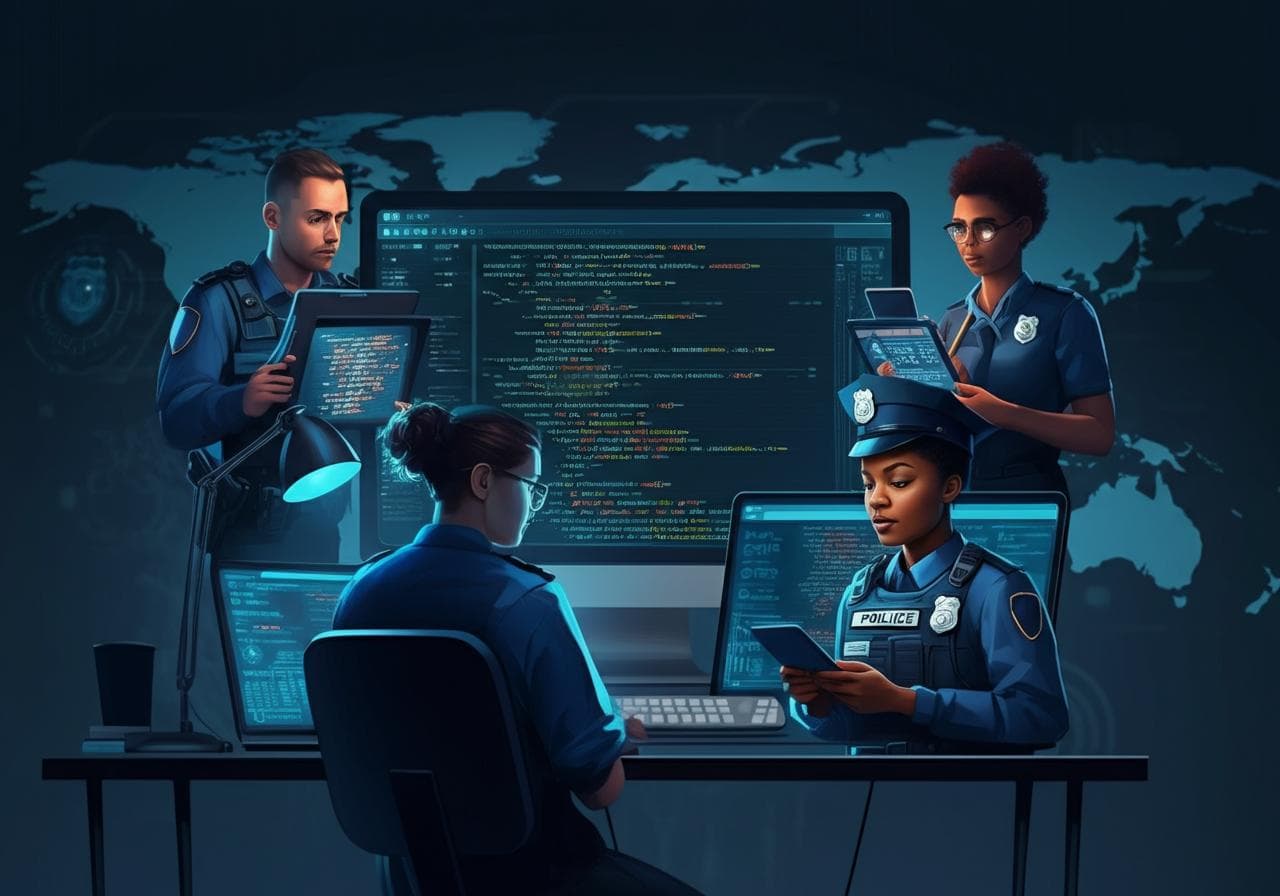Cybercrime Investigation Training
This training equips investigators with skills to combat cybercrime effectively.

Research topics
As the digital landscape evolves, so too do the challenges faced by law enforcement. Cybercrime has become an omnipresent threat, requiring police officers to hone specialized skills to effectively combat it. The demand for online police training programs is at an all-time high, providing officers with vital tools necessary to investigate and prosecute cybercriminals. This blog post will explore the significance of cybercrime investigation training and the various virtual law enforcement classes available to officers today.
The Rise of Cybercrime
Cybercrime encompasses a wide range of criminal activities conducted online, including identity theft, hacking, and online harassment. According to a report from the International Journal of Cyber Criminology, cybercrime incidents have increased dramatically over the last decade, outpacing many traditional forms of crime. With this increase, law enforcement agencies must adapt through effective training and education.
Importance of Cybercrime Investigation Training
Effective cybercrime investigation training equips police officers with the knowledge and skills necessary to understand the tactics employed by cybercriminals. This training often includes modules on digital forensics, cyber law, and investigative techniques specific to the digital realm.
The modern officer must be tech-savvy to combat increasingly sophisticated cybercriminals. This digiital criminal justice course training can cover vital topics such as computer systems, network security, and data recovery methods. Through engaging e-learning for officers, law enforcement can remain updated on current trends and tools. With the rise of platforms such as [Cops Training Portal](https://copstrainingportal.org/elearning/), officers have access to a wealth of resources that provide the necessary knowledge to tackle cybercrime.
Cybercrime investigation is not only about technical expertise but also a thorough understanding of the legal landscape. Keeping up with constantly changing digital laws is vital. Officers undergoing training will learn about issues such as privacy rights, internet regulations, and the jurisdictional challenges that arise in cybercrime. The web-based law certifications ensure that officers are aware of their legal boundaries while investigating, thus avoiding potential pitfalls.
Types of Training Programs
Training programs range from basic courses to advanced certifications. Many police departments are beginning to opt for virtual law enforcement classes to provide access to high-quality education for their officers, regardless of location. This approach also maximizes resources and minimizes downtime for officers.
Online courses can be extremely beneficial, offering flexibility and allowing officers to learn at their own pace. Many of these courses are interactive and include simulations to replicate real-life scenarios.
Workshops and webinars can help bring together law enforcement professionals to share knowledge and experiences. These events provide valuable networking opportunities and insights into best practices for staying ahead of cybercriminal activity.
Professional certifications in cybercrime investigation provide validation of officers’ skills and knowledge. These programs often involve rigorous training and examinations, ensuring that certified officers are among the best prepared to confront cyber threats.
Benefits of E-Learning for Officers
The transition to digital learning platforms offers numerous advantages:
- Accessibility: Officers can access training material from anywhere, making it easier to fit learning into their schedules.
- Cost-effective: E-learning reduces costs associated with traditional training methods, such as travel and accommodations.
- Up-to-date Content: The digital realm is ever-changing, and online courses can be quickly updated to reflect the latest developments in cybercrime.
Conclusion
The evolution of crime necessitates a corresponding evolution in training methodologies. Cybercrime investigation training is crucial to equipping law enforcement with the tools they need to tackle the challenges posed by an increasingly digital world. As highlighted in the Journal of Cybersecurity and Privacy, continuous education and advanced training are paramount for effective law enforcement in our digital age.
With the availability of online police training and a variety of virtual courses focused on digital criminal justice, officers can enhance their skills and stay ahead of criminals. For a brighter future in law enforcement, investing in quality training and education is essential—a necessity in the ongoing battle against cybercrime.
Posts Relacionados

Aclj Advocates For Religious Freedom In The Arctic
The Aclj supports religious freedom through donations. Donate to defend rights in the Arctic and beyond.

Aclu Wins Lawsuit Against Trump Administration Over Workers Rights
Support the ACLU and its fight for workers' rights. Donate now to protect their freedoms.

Amnesty International Demands Justice For Victims Of Extrajudicial Killings
Extrajudicial killings demand justice for victims, says Amnesty International.